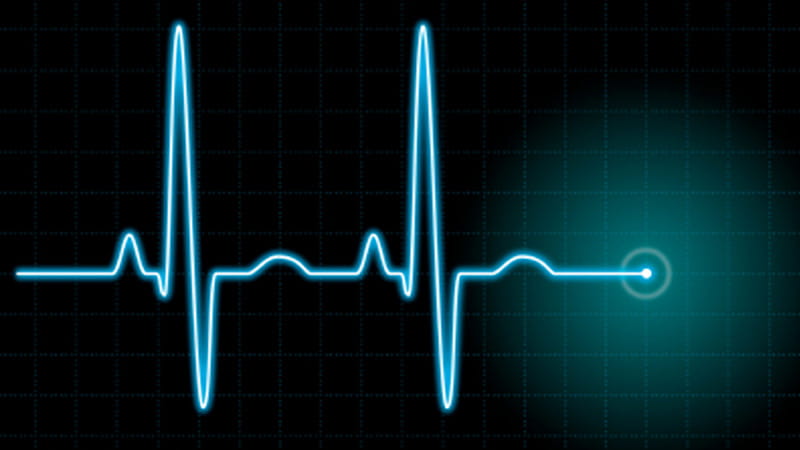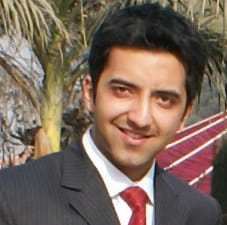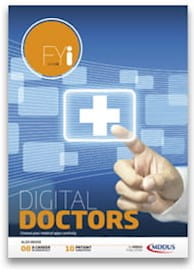
CORONARY heart disease is the leading cause of death in the UK, claiming more than 73,000 lives every year. These stark figures are among the key factors driving efforts to more effectively prevent, diagnose and treat this condition, helping to make cardiology one of the most innovative and dynamic medical fields.
Managing coronary heart disease patients forms only part of a cardiologist’s role. They also treat those with heart failure, arrhythmias, cardiomyopathy and more, undertaking invasive procedures such as catheterisations and fitting pacemakers, along with non-invasive imaging and cardiovascular clinical pharmacology.
There is a strong focus on working within multidisciplinary teams and a wide range of sub-specialty areas to pursue, as well as varied research opportunities.
Entry and training
Doctors looking to enter the specialty must successfully complete both foundation and core training programmes. For the latter, there are two available routes: core medical training (CMT) or acute care common stem - acute medicine (ACCS-AM). Trainees are also expected to achieve full membership of the Royal College of Physicians (MRCP(UK)) before progressing to the next level of training (ST3 – ST7). They will also have to register with (and pay the relevant fees to) the Joint Royal Colleges of Physicians Training Board (JRCPTB) at the start of specialty training.
Cardiology specialty training (beginning at ST3) takes five years. The first part consists of three years of core cardiology training, including training in general internal medicine. This is followed by two years of advanced modular training in either (or with combinations of): interventional cardiology; electrophysiology and devices; imaging (echo, MR,CT and nuclear); adult congenital heart disease; heart failure; academic cardiology or inherited cardiovascular conditions.
For trainees who wish to dual certify with general internal medicine (GIM), up to one extra year is usually required, the total time being dependent on previous GIM training within the core years.
Dr Ian Wilson, consultant cardiologist, VP of training for the British Cardiovascular Society and Chair of the RCP specialist advisory committee, said: “Upon completion of this programme, we have a general cardiologist (or cardiologist/general physician) trained to deal with all acute cardiological emergencies presenting to the ‘front door’, but with advanced skills in a cardiology subspecialty.
“The modern trend is for teams of cardiologists with different subspecialty interests to work together, providing front door emergency care along with a variety of local subspecialty services.”
Cardiology is a very competitive specialty and trainees are advised to plan ahead to seek out ways to improve prospects and prepare thoroughly for interviews. It can be useful to carefully read the person specification, talk to the cardiology training programme directors, take every opportunity to publish (case reports, reviews, audits, etc), consider taking a higher degree (e.g. MD or PhD), and do what you can to “tick” the necessary boxes. Where appropriate, consider applying to less competitive deaneries to improve your chances of success.
The British Cardiovascular Society (BCS) runs an annual, one-day course for core and foundation level doctors who are considering specialty cardiology training, with the next event taking place on 23 October, 2015 at the RCP, London. A Career in Cardiology aims to improve delegates’ chances of securing a cardiology training post and includes specific sessions on the ST3 application process and mock interviews.
Advice can also be sought from the British Junior Cardiovascular Society (BJCA) who have recently established a free ‘Starter BJCA’ membership for foundation programme and core trainees interested in undertaking higher specialty training in cardiovascular medicine.
The job
Cardiologists are largely hospital-based, working closely with both community-based primary care doctors and other hospital specialists including diabetologists, nephrologists and cardiothoracic surgeons, as well as anaesthetists and the imaging specialties (e.g. radiology and nuclear medicine). Key members of the cardiology care team also include specialist nurses, cardiac physiologists and cardiac surgeons.
Consultants generally divide their time between inpatient and outpatient clinical duties – including coronary care, investigation and interventional procedures – with some time in theatre or on the ward. Cardiologists may work some of their time as part of acute medical admissions teams looking after emergency medical admissions to acute medicine units.
Sub-specialisation within cardiovascular medicine has become commonplace with individuals focussing the development of their expertise in areas such as cardiac imaging, coronary intervention, heart rhythm disorders, adult congenital heart disease or heart failure.
RCP London figures show there are currently more than 700 people training in cardiology in the UK – a quarter of whom are based in London – with the vast majority (77 per cent) male. Specialists in this field are often categorised as the most high profile and practical-skill based of the medical specialties, with RCP London identifying the three key personality traits as: committed, dynamic and level-headed.
It is a field that is constantly changing and innovating. Looking to the future, the NHS Careers website predicts: “New imaging modalities such as magnetic resonance and CT scanning are likely to complement and challenge the invasive investigations performed in the cardiac catheter laboratory,” adding: “The specialty is determined to evolve in a way which continues to make it attractive to the brightest medical graduates, irrespective of gender.”
Cardiology may be a highly competitive and demanding specialty but treatment can make a real and immediate difference to both quality of life and life expectancy, making it a challenging but very rewarding field.
Sources
• Joint Royal Colleges of Physicians Training Board (JRCPTB)
• The British Cardiovascular Society
• British Junior Cardiovascular Society
Joanne Curran is an associate editor of FYi
 Q&A – Dr Waqar Aziz, Cardiology SpR, St Thomas’ Hospital, London
Q&A – Dr Waqar Aziz, Cardiology SpR, St Thomas’ Hospital, London
What first attracted you to cardiology?
I remember the first organ I learned about in school biology was the heart. In medical school I found myself drawn to everything related to the cardiovascular system and loved to work out ECG s. Working in cardiology I realised the range of treatments that patients can be offered and how the specialty is always on the cutting edge of biomedical technology. I loved the ability of cardiologists to save patients’ lives – for example in acute MI – and the potential to very quickly improve a patient’s quality of life whilst reassuring others about their cardiovascular health.
What do you enjoy most about the job?
I love using the latest cutting edge technology (i.e. fancy gadgets!) to benefit patients every day. I also enjoy learning skills that can potentially save a patient’s life instantly such as percutaneous coronary intervention or emergency pericardiocentesis. Cardiology provides a great balance between clinical medicine and the use of the latest technology and procedure-based care.
What do you find most challenging?
Working in a busy specialty with a fast turnover of patients can make it difficult to keep abreast of the many developments whilst at the same time learning new procedural skills and having a personal life. However, this is not impossible. To survive in cardiology you must show dedication and hard work but at the same time have patience and learn to appreciate the road.
Has anything surprised you about the specialty?
The ability and willingness to incorporate new innovations into the care provided to patients is something that surprised me and continues to feed my unquenchable interest in the field. The multidisciplinary aspect, interacting with cardiac echocardiographers, physiologists, cath lab staff, CCU and ward staff and other specialties like cardiothoracics to provide essential care to patients was something that I only realised once I started working in cardiology.
What do you consider the most important attributes of a good cardiologist?
As with any medical specialty, attributes like empathy, kindness, team work, a strong work ethic, enthusiasm, perseverance and leadership are essential. As too are being willing to work outside of your comfort zone, being decisive, anticipating potential complications and knowing your limitations. Working with often critically ill patients and performing delicate procedures, you must be prepared for inevitable complications. Being able to enjoy the highs whilst persevering through these lows and supporting each other through these is what also makes a good cardiologist.
Is there any advice you could give to a final year or FY trainee considering cardiology?
Knowing which specialty you want to do is the most important first step, enabling you to set out the goals to achieve before joining higher specialist training. I would recommend pursuing the membership exams first and then try to obtain presentations/ publications in your chosen specialty. Sub-specialties cater for a range of tastes. Invasive ones include interventional cardiology, and devices and electrophysiology. Non-invasive ones include heart failure/ imaging and also adult congenital heart disease and inherited cardiac conditions. Remember this is a lifelong process of learning and you must enjoy the road whilst progressing towards your chosen destination.
This page was correct at the time of publication. Any guidance is intended as general guidance for members only. If you are a member and need specific advice relating to your own circumstances, please contact one of our advisers.
Read more from this issue of FYi

Save this article
Save this article to a list of favourite articles which members can access in their account.
Save to library